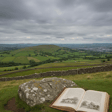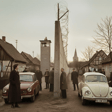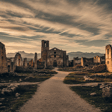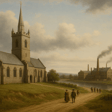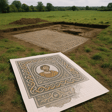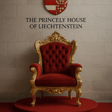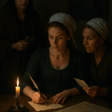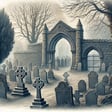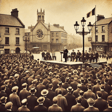
The Beresford Apparition
Episode fifteen of Pieces of History takes us deep into the eerie world of 17th-century Ireland, where ghost stories, political intrigue, and family legacies intertwine.
In this episode, we uncover the mysterious Beresford Apparition - a chilling spectral visitation involving Lady Beresford and Lord Tyrone that has haunted local memory for centuries. What was the story behind this famous ghostly encounter? How did it reflect the turbulent politics and social tensions of the era? And what role did prophecy and superstition play in shaping public perception?
More than just a tale of hauntings, this episode explores the fragile boundaries between history and folklore, power and prophecy — and how stories from the past continue to captivate and mystify us today.
Email: piecesofhistorypod@outlook.com
Facebook: Pieces of History podcast
Instagram: @pieceofhistorypod
